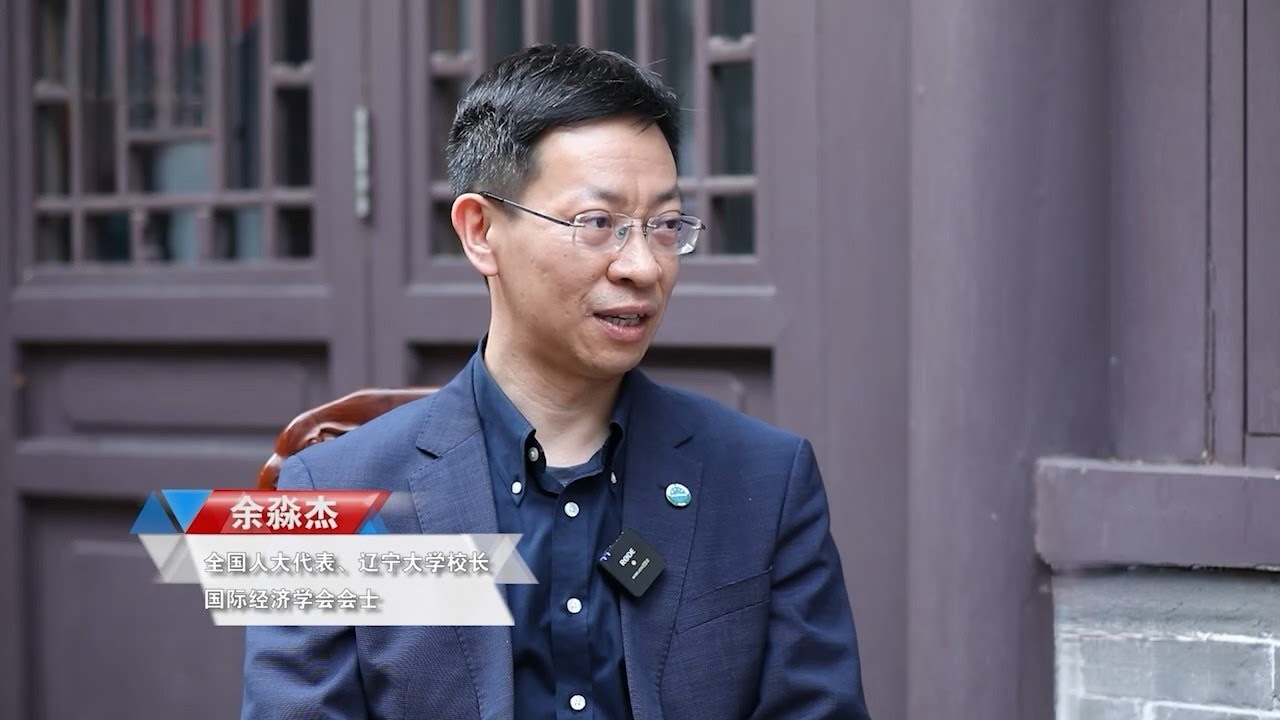
Professor Yu Miaojie, a deputy to the National People’s Congress, a fellow of the International Economic Association and President of Liaoning University, was interviewed by China News Service. Drawing on China’s practical experience in the digital economy, particularly in cross-border e-commerce, he offered an in-depth interpretation of the Tianjin Declaration and its significance for digital economy cooperation within the Shanghai Cooperation Organization (SCO).
The full original text and link are reprinted below:
The digital economy has become a recurring focus of multiple SCO summits. The Tianjin Declaration of the SCO Council of Heads of State (hereinafter the Tianjin Declaration), released on the 1st, once again places the digital economy at the centre of discussion.
Several experts interviewed by China News Service noted that as the digital wave continues to sweep across the globe, the scale of digital dividends is enormous. SCO member states are embracing the digital economy as a new driver of national economic growth, and the Tianjin Declaration outlines priority directions for future cooperation in this domain.
Promote E-commerce Cooperation
The Tianjin Declaration affirms member states’ commitment to strengthening e-commerce cooperation, and acknowledges the proposal to formulate an Outline for Cooperation on E-Commerce among Authorized Agencies of SCO Member States.
Data shows that in 2024 the online retail market of SCO member states exceeded USD 3.2 trillion, accounting for more than half of the global total. China’s cross-border e-commerce imports from other member states grew by 34% year-on-year, with an increasing number of high-quality and distinctive regional products entering the Chinese market through e-commerce platforms.
Professor Yu Miaojie emphasised that China has long been a global frontrunner in e-commerce. With advantages in digital technology and market scale, deepening cross-border e-commerce cooperation within the SCO has become a powerful lever for injecting new vitality into regional trade and economic collaboration.
“Cross-border e-commerce still has vast room for growth. Through dialogue and consultation, SCO countries can further improve the policy environment for e-commerce, making it more equitable, transparent, and predictable,” Yu said.
Developing Digital Infrastructure
The Tianjin Declaration makes frequent reference to digital infrastructure, stressing the importance of digital trade infrastructure. It calls for ensuring stable and smooth supply chains through digitalised logistics, electronic data exchange for goods, and technological innovation. It also highlights the need to enhance customs digitalisation and build a “Single Window” system for international trade to establish “Smart Customs.”
Since the SCO’s establishment, member states have achieved notable progress in digital infrastructure. Indicators such as internet penetration, mobile connectivity, and the speed of mobile and fixed broadband connections have all improved steadily.
According to Li Yongjian, a researcher at the National Academy of Economic Strategy of the Chinese Academy of Social Sciences, developing digital infrastructure requires a dual approach of hardware and software. On the one hand, it is necessary to reduce cross-border trade costs by breaking down compliance barriers and improving institutional, standard, and regulatory frameworks in areas such as settlement and customs facilitation. On the other hand, efforts should focus on advancing 5G, gigabit optical networks, and computing infrastructure to provide a solid foundation for unleashing the potential of the digital economy.
Narrowing the Digital Divide
The Tianjin Declaration also stresses member states’ commitment to narrowing the digital divide between developed and developing countries, highlighting the importance of cooperation in education to achieve this goal.
Zhang Yansheng, Chief Researcher at the China Center for International Economic Exchanges, pointed out that 2025 marks the SCO Year of Sustainable Development, and bridging the digital divide is essential to advance sustainability. In this process, cultivating and exchanging digital talent is particularly critical.
It is reported that China has launched the “SCO Tree” series of digital technology training programmes, which have already trained more than 830 digital professionals from SCO countries. Looking ahead, China plans to expand these initiatives internationally, with training sessions to be held in Kyrgyzstan, Uzbekistan, Kazakhstan and other member states so as to transform training outcomes into practical cooperation.
As Xiong Jijun, Vice Minister of Chinese Ministry of Industry and Information Technology, underlined:
“Relying on the China–SCO Big Data Cooperation Center, we are training digital technology professionals for SCO countries. Through mutual learning and exchange, we aim to accelerate digital transformation and build bridges for win-win cooperation in the digital sphere.”
